current co-youth director at Middletown Presbyterian Church and mom
As an African American woman, a Christian, and a millennial, social justice is near and dear to my heart. When working for a company, I want to know that it cares about addressing the legacy of inequality in our nation, one hire at a time. The recruitment, hiring, and retention of persons of color is a vital factor in ensuring economic development and justice for all.
By interacting intentionally with their surrounding communities, businesses can help heal broken relationships, including those that cross racial lines. Now more than ever, business leaders must expand their rubric for success beyond financial achievement and assess how their firms function as responsible citizens, consistent with Elkington’s “triple bottom line.”
It’s difficult to embrace such outcomes, however, without first acknowledging that the great racial divide within our country and lack of representation of black and brown Americans in the workplace stems from structural inequalities deeply entrenched in society. We continue to reap a harvest of racism sown by a legacy of slavery, segregation, violence, and voter suppression.
The consequences of Jim Crow laws and red-lining have endured for generations along with the outcomes of other systematic efforts to exclude black and brown people from the American dream. Just as these injustices were not casually implemented, measures to undo them also must be comprehensive.
According to MarketWatch, for the past 70 years a wealth gap has existed that’s seen black households remain 80% poorer than white ones. Put another way, the typical white family has wealth of $171,000 versus $17,150 for an average black family. The National Economic Association, formed by black economists in 1969, suggests that the current widespread protests against police brutality are related to this wealth gap and as a result, racial conflict will likely continue until fundamental inequities are addressed.
But, why should businesses attempt to address deep-seated issues that span centuries and defy easy answers? Aren’t there governmental organizations and nonprofits already dedicated to solving this problem? I believe businesses are uniquely equipped to propel entire communities forward, thereby closing the wealth gap and making a lasting difference for people of color.
Furthermore, businesses that care about both the prosperity and unity of our nation can wield their economic influence to play a much-needed reconciling role. By tackling this issue of inequality, they will create stakeholder value even as they promote positive societal values.
Firms that employ a diverse workforce, benefit from a range of perspectives that ultimately make the organization stronger. Likewise, today’s customers increasingly care about the ethos of the brands they support. Millennials believe small acts of enlightenment can add up to larger societal change, while Gen Z sees its buying power as a means of activism: According to Forbes, 76% of this age cohort says it’s purchased from a brand in order to support the issues it espouses.
In the wake of George Floyd’s death at the hands of a white police officer, we have seen CEOs across the county issue company-wide and public statements condemning racism within society as well as within their organizations.
I celebrate these leaders who have leveraged their influence to stand against injustice. These statements not only reflect sound leadership, they have allowed conversations against injustice to continue in the marketplace.
I would also encourage those same leaders to continue on this journey of racial reconciliation and racial justice even as this topic moves out of media coverage. It will take hard, long-term work and commitment in order to combat deep-seated and systemic racism. However, on the other side of this endeavor are meaningful relationships and networks with communities of color.
Businesses can accomplish this transformation most effectively by nurturing an employee base that gives meaningful work opportunities to people society has historically marginalized. People of color need access to quality, life-sustaining jobs with fair wages, as well as benefits like healthcare, retirement plans, childcare, and tuition assistance so they can begin to close the wealth gap and gain financial freedom.
Here are seven steps that businesses should take to market themselves as employers of choice who offer real economic opportunity to people of color:
- Assess the current organizational climate: Evaluate existing recruitment practices and organizational culture by asking, “Is our workplace one where an individual from a minority group feels welcomed and accepted? and “Is there no tolerance for racist rhetoric or innuendo?” Answers to such questions will help to clarify community-building goals and to determine if the workplace is an inviting one, likely to retain people of color once they are hired.
- Enlist internal champions: While your goal may be for everyone in your organization to embrace the idea of racial reconciliation, not all will be equipped or enthusiastic about this plan. Consequently, it’s important to identify and engage specific leaders: individuals who are well-suited and passionate about the initiative and who can garner support from entire teams.
- Build external relationships: Partner with civic organizations and non-profits that focus on placing qualified, ethnically diverse people into corporate environments. Also, solicit the aid of local government in tackling this societal issue. Ask each entity for initial input and ongoing support, including leveraging their networks to help identify qualified people of color for particular positions.
- Develop a strategic diversity and inclusion plan: Using feedback from internal and external stakeholders, draft a document that outlines the general strategies and specific tactics the organization should implement in order to achieve measurable outcomes for diversity and inclusion.
- Create a roadmap for success: Develop strategies that will help retain people of color within your organization. While each new hire’s needs may be different, recognize that their new position likely will pose a major life transition; for example, the employee may need to relocate. Provide the new hire with real estate contacts in the area or even an apartment to rent in order to make relocation easier.
- Keep the conversation going: At the launch of the initiative and thereafter, host regular discussions aimed at encouraging racial reconciliation in the workplace and at ensuring that restorative programs continue to be seen as top priorities.
- Make higher education possible for employees’ children: To truly break the pattern of wealth disparity, it’s important to provide educational opportunities for future generations, which can happen by offering current employees support in saving for their children’s education. By the way, those children may even decide to join the same organization when it’s their time to enter the workforce.
By intentionally reaching out to communities of color with offers of gainful employment, organizations clearly communicate that they see injustice in society, they understand that separate is not equal, and they are willing to do everything they can to make opportunities available to those often marginalized, because they care.
Committing to a more diverse workforce can bring its own set of challenges, which may at times cause business leaders to wonder if their effort is worth the reward. Ultimately, though, the investment in inclusive excellence will pay generous dividends to those organizations and our world, making employment initiatives aimed at racial restoration “Mindful Marketing.”
Learn more about the Mindful Matrix and Mindful Meter.
Check out Mindful Marketing Ads and Vote your Mind!


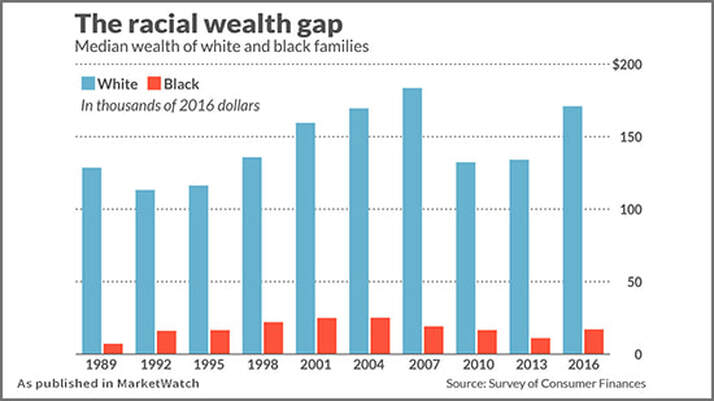
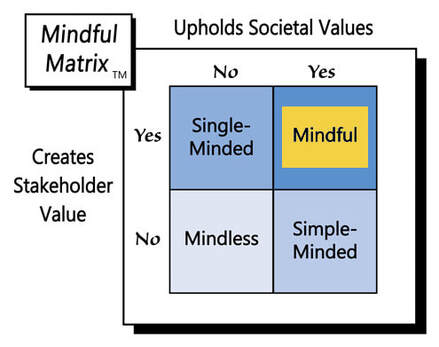


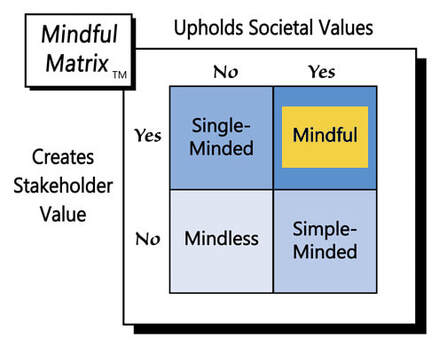
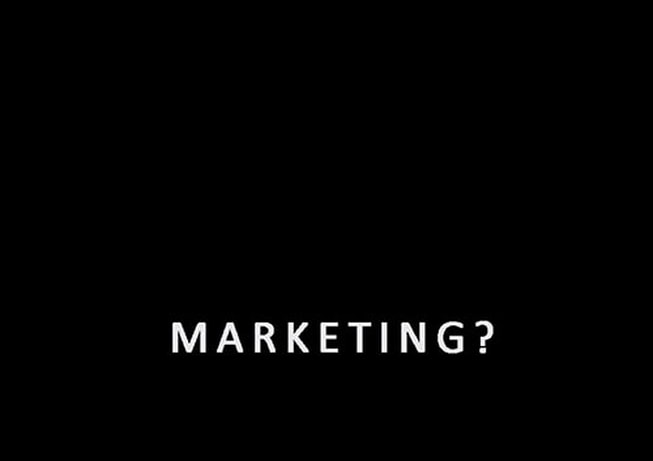
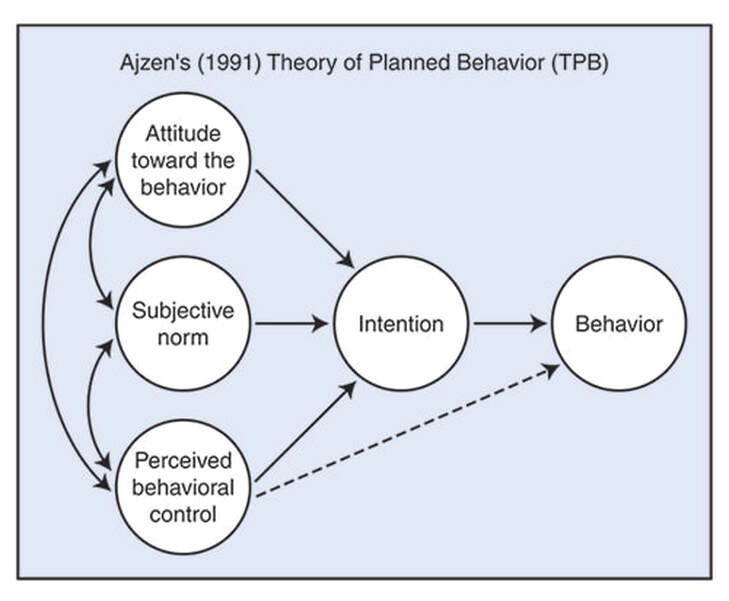
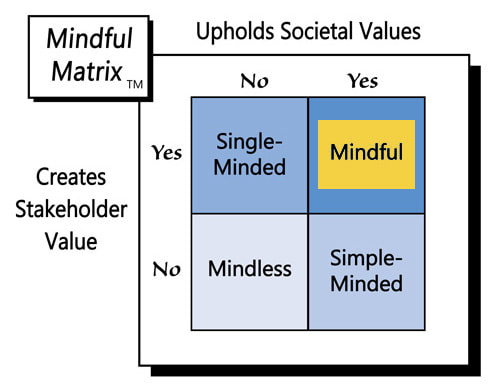
 RSS Feed
RSS Feed